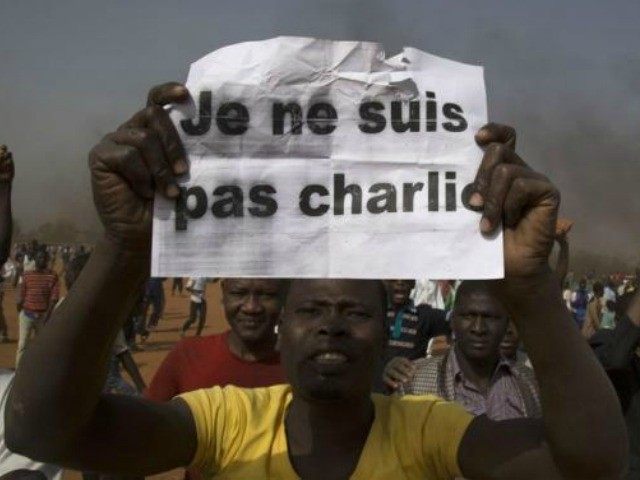Forty-five churches were torched Saturday in the Nigerien capital of Niamey and five persons were killed during the riots protesting caricatures of Mohammed published last week by the French weekly Charlie Hebdo, the Nigerien police announced Monday.
“Substantial damage was registered: 45 churches, five hotels, 36 pubs, an orphanage and a Christian school were looted before being burned,” the spokesman of the National Police, Adily Toro, said at a press conference.
In addition to the five deaths announced by President Mahamadou Issoufou Saturday, protests left 128 injured, including 94 in the security forces and 34 among the demonstrators, said Toro, who added that 189 people have been arrested including two minors.
Furthermore, some 300 protesters answering to opposition leaders had defied ban by authorities on Sunday morning to march on Niamey. Clashes occurred between protesters and riot police who had come to disperse them.
On Sunday night the governor of Niamey announced 90 arrests from among the protesters. Local media have reported that some opposition leaders are among those arrested.
Five others had died and 45 were injured Friday in anti-Charlie riots in Zinder, Niger’s 2nd largest city in the southeast, where the Franco-Nigerien Cultural Centre and several churches were burned.
The Interior Minister Hassoumi Massoudou said that Boko Haram flags were present in the demonstrations in Zinder.
“Similarities” were found between anti-Charlie protests Friday in Zinder, and Saturday and Sunday’s riots in the capital, where “Boko Haram flags were seen,” said Adily Toro Monday.
Two opposition leaders contradicted Toro’s version, affirming that there was “no connection” between the two events, “they are two totally different things that have nothing to do with one another,” they objected Sunday.
The political march had been organized long before the recent Charlie Hebdo publications and could not be considered a result of anger over the French weekly, they said.
In his address to the nation Saturday night, President Issoufou asked opposition leaders to “refrain from any exploitation of religion for political purposes.” As the president of a country that is 99% Muslim, Issoufou participated in the January 11 march to Paris after the terror attack on the offices of Charlie Hebdo.
“The opposition is trying to capitalize on this discontent,” said a local source on Sunday.
The causes of the riots remains somewhat nebulous, with some speculating that protesters were angry over their president’s participation in the solidarity march of world leaders in Paris while others place more of the blame on political factors, especially since protests started in the opposition stronghold of Zinder. Still others suspect the instigation of Boko Haram, the Islamist militant group from neighboring Nigeria.
Follow Thomas D. Williams on Twitter @tdwilliamsrome.

COMMENTS
Please let us know if you're having issues with commenting.